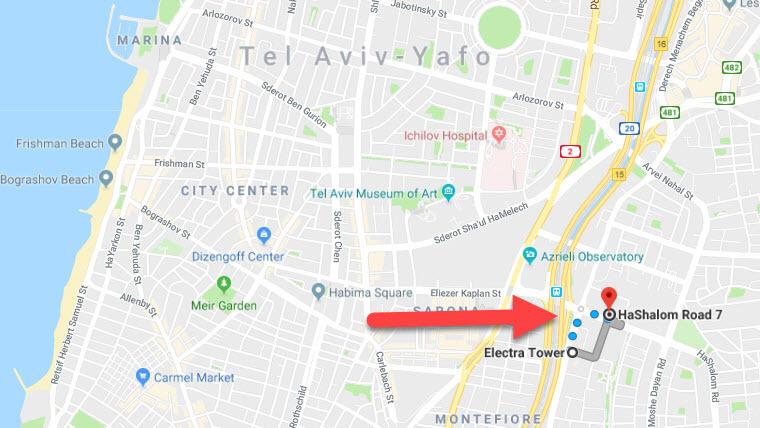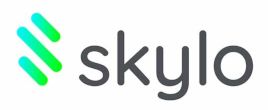“I had just landed at Tel Aviv’s Ben-Gurion airport in May of 2012, after returning from a J & Beyond conference about open-source technology. When I switched on my phone I had numerous urgent messages from the IT team of Golan Telecom – a leading Israeli mobile operator. This would be the official beginning of a snowball effect, which would result eventually in the phenomenon known today as BillRun.
Two years later, in October 2014 we signed the MT contract - our first international client - and expanded our workforce to 10 employees, including developers and project managers. In addition to replacing MT’s billing and CRM systems, we provided guidance on open-source ESB Apache ServiceMix, as well as consulting on Joomla CMS. In May 2015 we launched our first open-source landline and internet system - in MT - and in November we replaced the remaining 2Play for mobile and VOD. The transition to a unified billing system enabled MT to offer its customers more diverse, comprehensive plans.
Ofer Cohen - CEO of BillRun – reflects on the first 4 years of activity at the company: “It’s been an amazing roller coaster ride!”
The beginning of a snowball effect
“I had just landed at Tel Aviv’s Ben-Gurion airport in May of 2012, after returning from a J & Beyond conference about open-source technology. When I switched on my phone I had numerous urgent messages from the IT team of Golan Telecom – a leading Israeli mobile operator. This would be the official beginning of a snowball effect, which would result eventually in what the phenomenon known today as BillRun.
At the time I was heading the development at a startup company, and a board member of the non-profit organization OpenSourceMatters that promotes Joomla – a free open-source content management system. In this capacity I would travel around the world, preaching about the benefits of open-source code.
Golan Telecom were requesting my help in reviving their mobile number portability (MNP) system, which I had previously designed for them, but never had the chance to complete.
When I got started on the project, I ended up writing an entirely new program from scratch, based on Zend Framework V1 and MySQL V5. The new system, launched in less than a week, provided high availability and redundancy, and performed well for over two years, when it was upgraded to a newer version.
Several weeks following the system’s launch, I left my job to embark on a new exciting journey as a contract system developer of anti-fraud and CRM systems for Golan Telecom.
Growing by leaps and bounds
In September 2012, Shani Dalal - an army buddy - joined me as a partner. We had previously established a start-up company together - a platform for web-based applications, which we named S.D.O.C. – after our initials – a ‘temporary’ name that stuck for 3 years. However, when we began our studies of Computer Sciences together at Tel Aviv University, our venture came to a halt.
In December 2012 Golan Telecom asked us to develop a new billing system that would replace their existing system. Eran Uzan, with whom I had previously partnered in founding another startup, joined the team and started working on the new billing project. We chose PHP-YAF as a fast development framework, and MongoDB for the database - two choices which proved to be successful, and the system was released as a free open-source version.
After carrying out a proof-of-concept for Golan Telecom subscribers, we deployed the product within two weeks and launched it without a hitch. The speedy pace of the project loaned it its name: BillRun, also a known term in the telecom world for a monthly cycle.
We subsequently introduced a new anti-fraud system and other systems based on open-source architecture - a technology which provided a dynamic development platform for implementing changes rapidly, and the ability to expand the core system without overriding it.
In 2013 we replaced Golan Telecom’s main billing system, which began with 250,000 subscribers in the beta test, and reached over 400,000 by system launch. Leveraging NoSQL database technology provided easy scale-out, and a development environment that seamlessly accommodated Golan’s rapid growth. This increase in volume was evident both in the clientele base, and in the amount of subscriber packages which was growing at a stellar pace, resulting in a dramatic increase in the number of records handled by the system. Using MongoDB community version we achieved zero downtime during database upgrades.
BillRun sets sail across the deep blue sea
News in the telecom world travels fast, and soon thereafter 019 TelZer, another Israeli telecom company, requested that we deploy a number portability system for them. Within 2 weeks we replaced the old system with a new one, gaining another happy customer.
When Monaco Telecom (MT) was purchased by one of the investors of Golan Telecom, MT - then in the process of moving to open-source systems - approached us with a request to implement a new billing system for them. The challenge was integrating all their services – mobile, landline, internet and VOD – each comprising a separate billing, CRM, and inventory management system - into one new system, and converting it all into open-source code.
In October 2014 we signed the MT contract - our first international client - and expanded our workforce to 10 employees, including developers and project managers. In addition to replacing MT’s billing and CRM systems, we provided guidance on open-source ESB Apache ServiceMix, as well as consulting on Joomla CMS. In May 2015 we launched our first open-source landline and internet system - in MT - and in November we replaced the remaining 2Play for mobile and VOD. The transition to a unified billing system enabled MT to offer its customers more diverse, comprehensive plans.
Playing in the big leagues
TelZer recommended us to Pelephone – a leading Israeli cellular carrier – and on April 1, 2015 we began integrating our third number portability system - now at Pelephone - completing the launch in July. Once again we proved our ability to integrate large systems in tier-1 enterprises.
Following this successful project, Pelephone requested that we tackle their prepaid billing system. This required the integration of their core network system into every call, data usage session, and text message. The importance Pelephone attributed to this project on an organizational level, demonstrated their high level of trust in BillRun. The agreement was signed in July 2014, and, after a brief delay, expedited deployment began in November.
A month before the launch, as typically done in agile development projects, every work day began with a daily meeting attended by the various teams involved in the project, which totalled close to 100 people. Pelephone’s executive management also met daily, reporting continuously to the CEO as to the progress of the project.
The project was no small challenge for a young company as BillRun, which by now consisted of 15 employees. It was our first real-time implementation of the same architecture we had used for building the first version we released.
Following a fire that broke out at one of Pelephone’s data centers, the system continued to work seamlessly and flawlessly, while the old system was down for several days until the problem was fixed. Once again our technological choices proved successful - mainly with regards to resilience. We launched the system in April 2016, and completed migration of all the subscribers within three months.
BillRun takes the next step as a global player
In January 2016 Koby Lif joined the BillRun team as Head of Sales and Marketing. “I was captured by BillRun’s young entrepreneurial spirit, and by their drive to challenge a market segment dominated by giant software players. This motivated me to join the team and take BillRun to the next level, where it could compete with the big boys”, he said
Koby implemented a marketing strategy that would leverage the remarkable customer trust and experience BillRun had gained, as an attractive, affordable product. Emphasis was placed on commercializing the company’s vast IP portfolio, making it available in the form of products versus services.
“BillRun, having aimed towards the traditional global market of telecom MVNOs and CSPs, has, simultaneously, invested considerable efforts in its soon-to-be-launched BillRun Cloud platform - a unique open-source, cloud-based billing solution that consolidates vast knowhow into a Saas based model”, said Koby. “BillRun Cloud offers SMB’s and startups an affordable, elastic solution, that enables them to expand into new industries, providing rich functionality, which until now, was accessible only by large enterprises. BillRun Cloud will soon be deployed at a leading Israeli IT company, serving as a comprehensive solution for all their billing and collection needs”, he said.
"To help us implement our marketing strategy and boost our online presence, we hired Digipave, an international online marketing agency. We upgraded our website and expanded our activity on LinkedIn, Twitter and other online channels. We also launched a monthly newsletter and blog, and prepared other marketing materials such as datasheets and a movie about BillRun Cloud,” said Koby.
In May 2016 the company name was officially changed to BillRun. Having been entirely bootstrapped, BillRun has consistently rejected investment, and was profitable from day one.
BillRUN company milestones
- May 2012: Golan Telecom (GT) NPG deployed. SDOC NPG version 1.0.
- September 2012: Official founding of BillRun as S.D.O.C.
- December 2012: Small billing deployed; BillRun billing version 1.0
- May 2013: GT BillRun Anti-Fraud deployed; BillRun billing version 1.5 (Anti-Fraud added as module to the core)
- December 2013: Main GT billing deployed to production; 450K subscribers 15M CDRs per day. BillRun version 2.0.
- June 2014: NPG deployed at 019 Telzar; BillRun NPG version 2.0
- November 2014: Monaco Telecom (MT) signed with BillRun (previously SDOC) to replace CRM and billing systems, as part of overall open-source replacement for their IT.
- January 2015: Main GT billing scale without downtime with only HW extension; 800K subscribers 50M CDRs per day.
- May 2015: MT deployed BillRun and CRM for VOIP and internet; BillRun billing version 3.0
- July 2015: Pelephone deployed BillRun NPG; BillRun NPG version 3.0
- November 2015: MT added Mobile and VOD; BillRun billing version 3.2
- Sep 2016: Pelephone implements online charging system: BillRun billing version 4.0 (added real-time and prepaid support)
- Oct 2016: Launch of Billrun Cloud: BillRun billing version 5.0
























